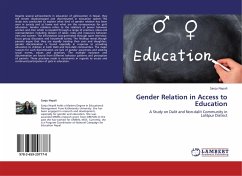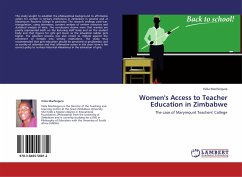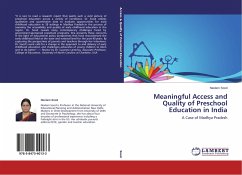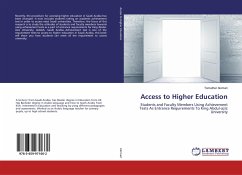Despite several achievements in education of girls/women in Nepal, they still remain disadvantaged and discriminated in education system. This study was conducted to explore what kind of gender relation has been seen in society and at home and what are the consequences for girls' education. Gender relations refers to the relations of power between women and men which is revealed through a range of practices, ideas and representations including division of labor, roles and resources between men and women. The information was generated through open interview, focus group discussion and household survey. The findings reveal,though parents argue that they are equally treating their sons and daughters, gender discrimination is found especially in response to providing education to children in both Dalit and Non-dalit communities. The major reasons for such discrimination are lack of gender awareness and existing social norms, values and practices. The multiple exclusion and discrimination are found from different behavior patterns and perception of parents. These practices result is constraints in regards to access and continued participation of girls in education.








